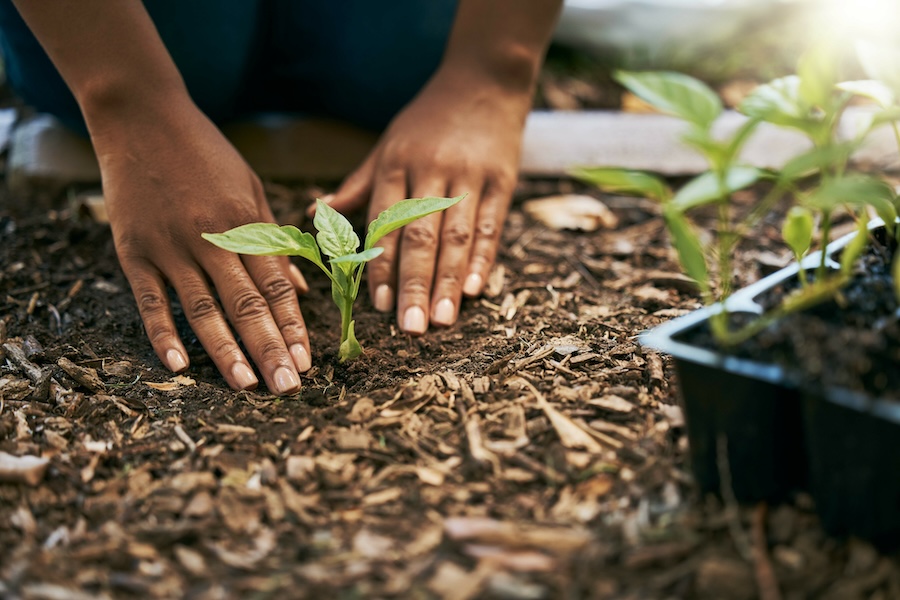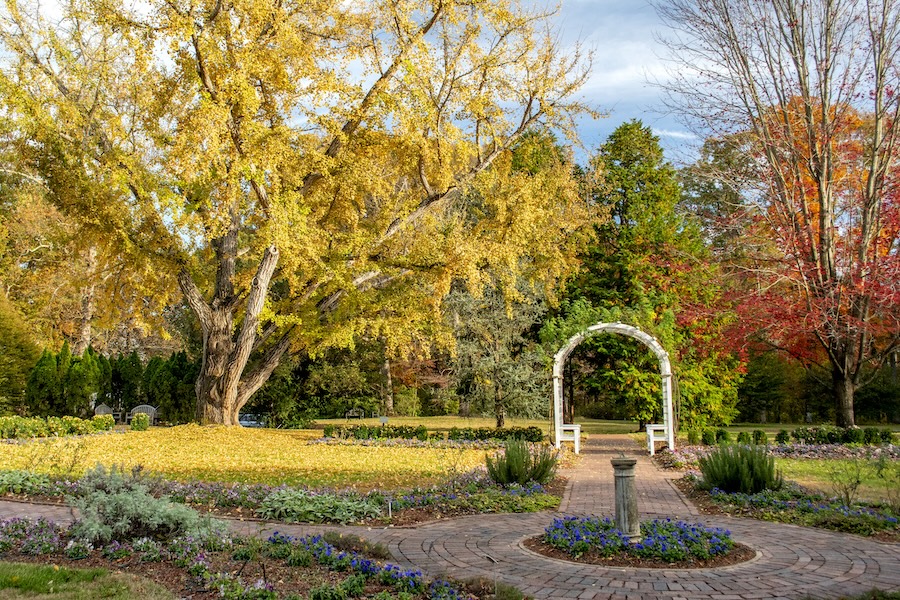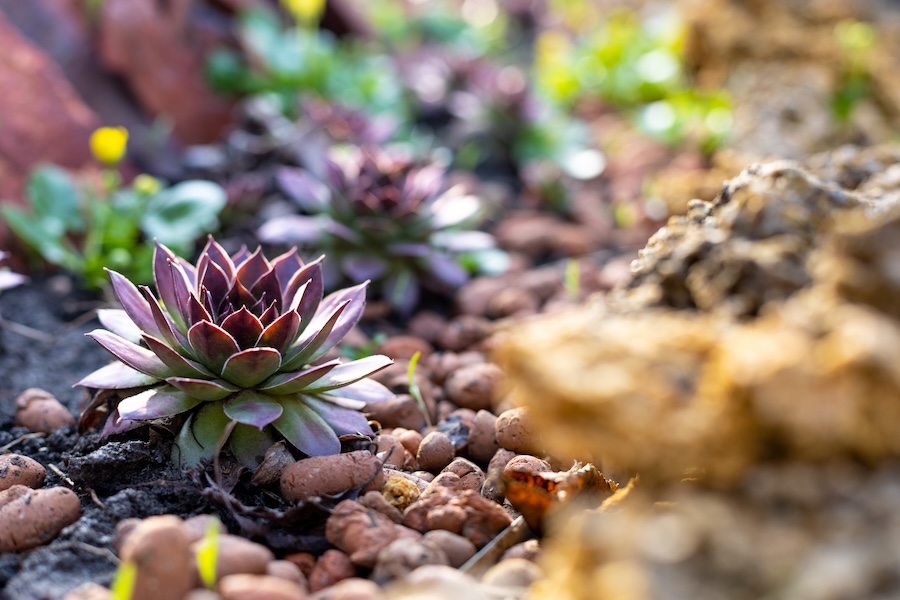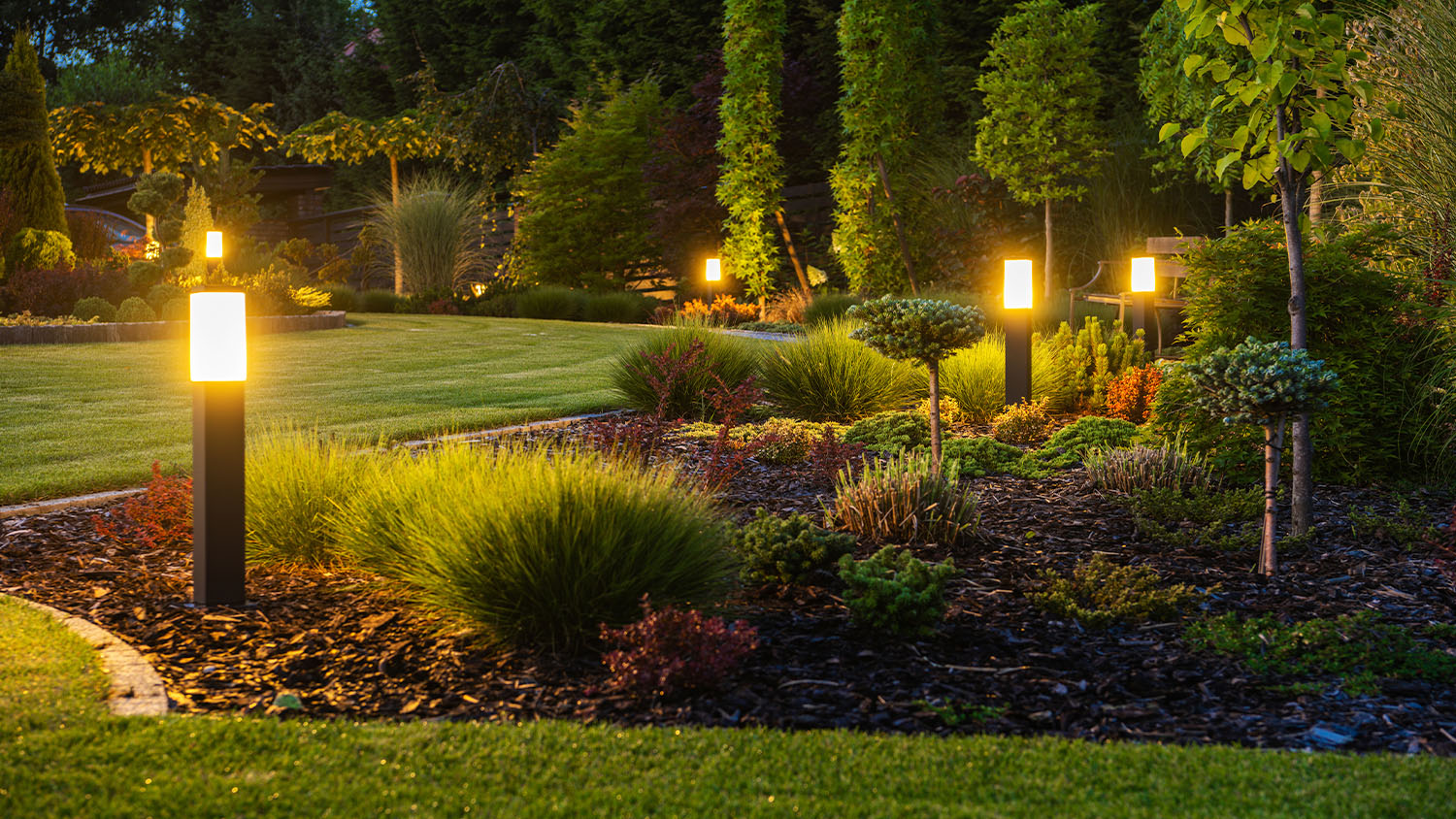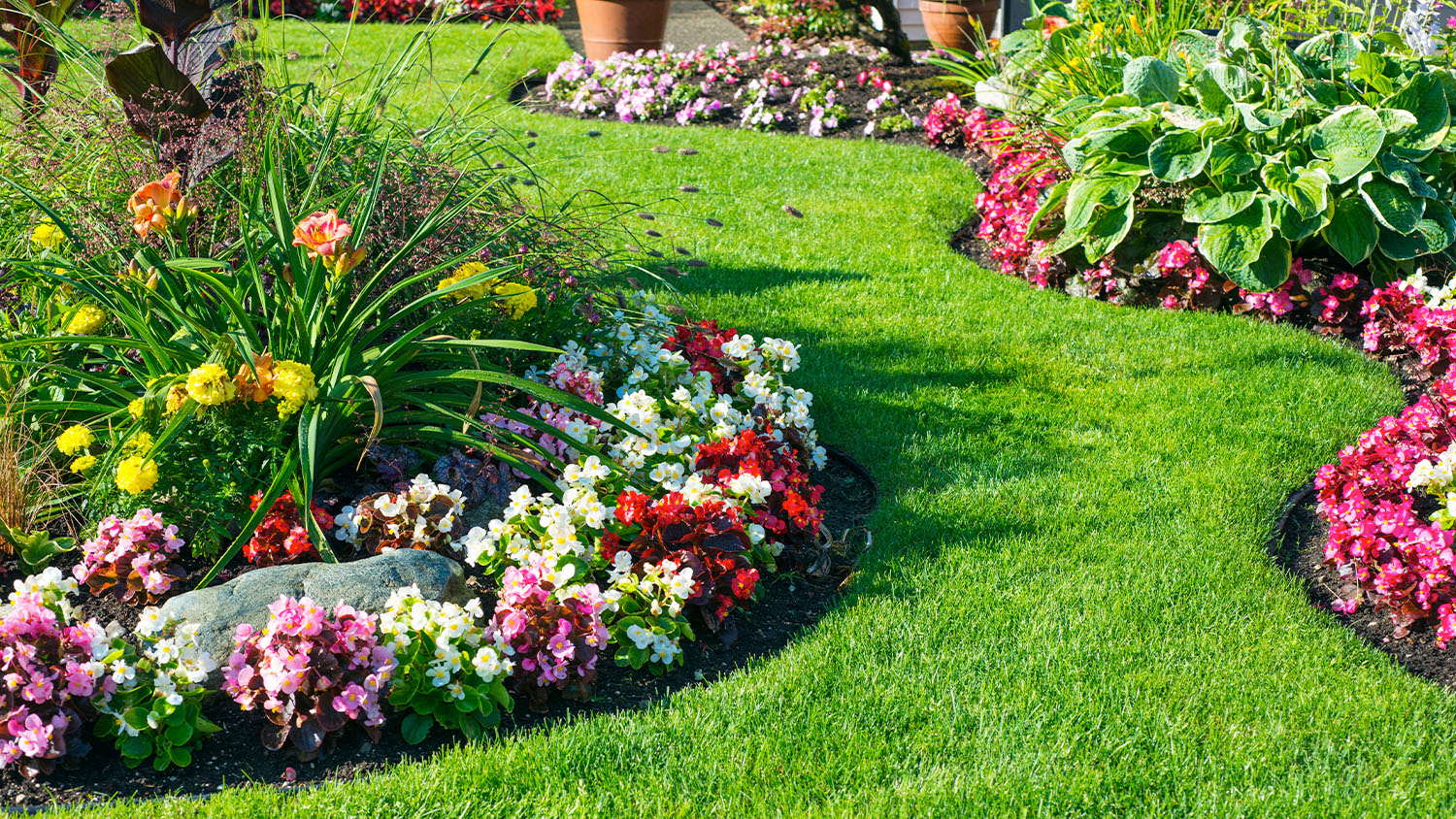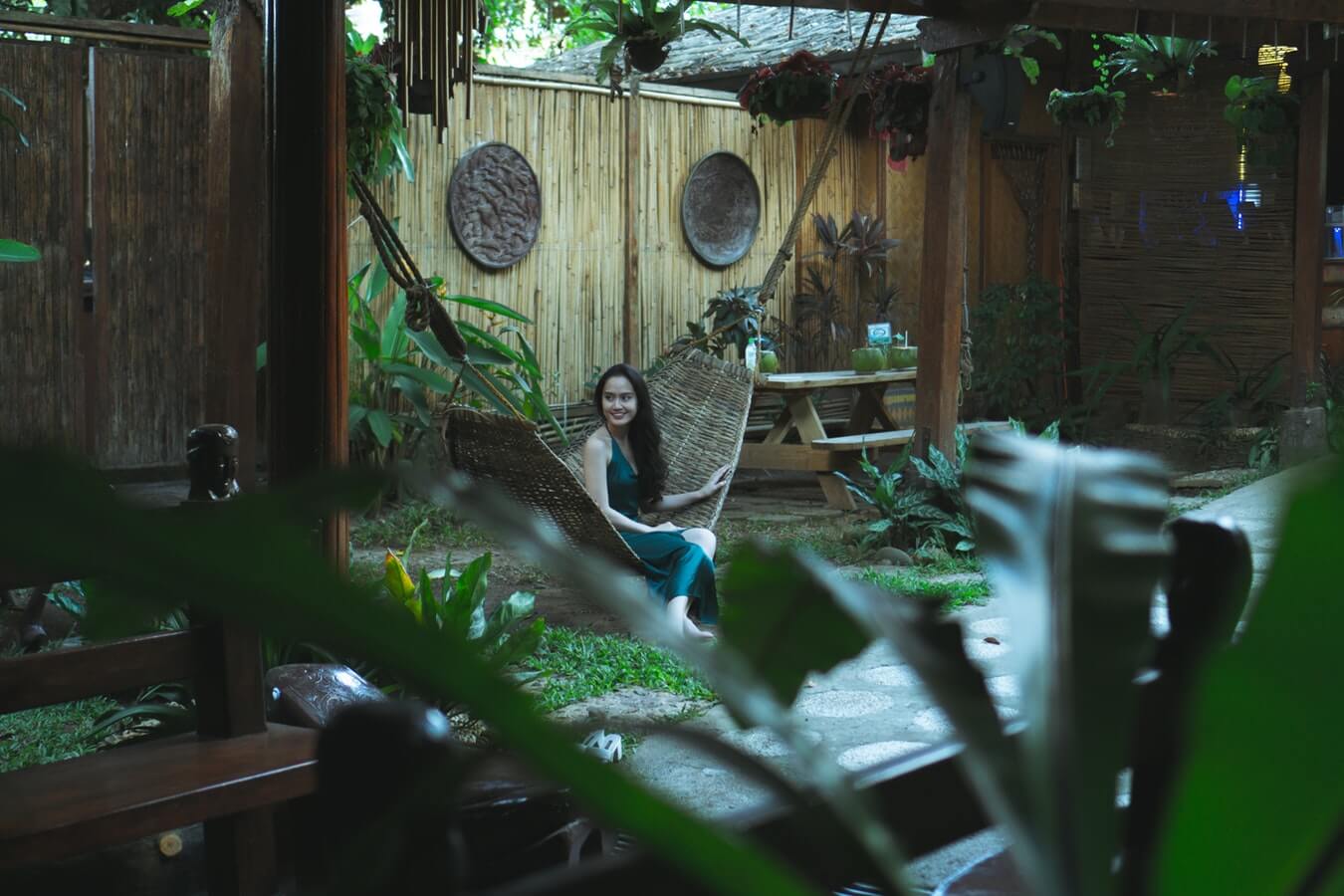June has arrived, bringing with it the promise of lush green foliage, blooming flowers, and warm summer days. It’s the perfect time to step out into your backyard and put your green thumb to work.
But this year, why not turn a new leaf and consider a different kind of landscaping? Eco-friendly landscaping.
Eco-friendly or sustainable landscaping is all about designing and maintaining your yard in a way that reduces harm to the environment. It’s a conscious approach that safeguards the health of our planet while still providing a stunning outdoor space for you to enjoy. It feels good on so many levels: you get a beautiful backyard and the satisfaction of knowing you’re doing your part for the environment.
The Need for Sustainable Landscaping in Ottawa
Now, you might be wondering: why should you opt for sustainable landscaping? The answer lies in the increasing environmental concerns we’re facing today.
Climate change, habitat destruction, and water scarcity are just a few of the challenges. But here’s the good news: your backyard can be part of the solution.
Every decision you make in your garden–from the plants you choose to how you water them–can impact the environment. By adopting sustainable practices, you can make this impact positive.
Landscaping contributes to a greener Ottawa in various ways. For instance, planting native species encourages local biodiversity and reduces the need for harmful pesticides. Conserving water helps preserve our precious water resources. Composting enriches the soil while reducing waste.
Plus, let’s not forget the aesthetic appeal. A sustainably landscaped yard isn’t just environmentally friendly–it’s visually stunning. Imagine a yard filled with vibrant native flowers, a lush vegetable patch, and perhaps even a tranquil rain garden. It’s about harmonizing beauty and sustainability, creating an outdoor space that nourishes both the earth and your well-being.
As homeowners in Ottawa, we have the opportunity–and responsibility–to make our city a little greener, one backyard at a time. So, let’s dive into how you can make it happen!
Water Conservation in Landscaping
Water is a precious resource, and conserving it is a crucial aspect of sustainable landscaping. With careful planning and smart choices, you can significantly reduce the water use in your garden.
One of the best ways to conserve water is by choosing native or drought-tolerant plants. These plants have adapted to our Ottawa climate and can thrive with less watering. They’re not just water-efficient – they also require less maintenance, making them a win-win for any garden.
Installing a drip irrigation system can be another effective way to conserve water. Unlike traditional sprinklers, which can waste water through evaporation and runoff, drip irrigation delivers water directly to the plant’s roots. This not only conserves water but also promotes healthier plant growth.
Creating a rainwater collection system, like a rain barrel, can be a great way to make use of the rainwater that falls on your roof. This can provide a natural source of water for your garden, saving you money and reducing your reliance on municipal water.
Rain Gardens: Harnessing the Power of Rainwater
Rain gardens are another fantastic element in eco-friendly landscaping. They’re strategically placed to collect and absorb rainwater runoff from hard surfaces like your roof or driveway.
The idea is to let this water slowly infiltrate into the ground rather than enter the storm drains — a simple yet effective way to manage stormwater runoff at home.
Rain gardens are filled with deep-rooted native plants, and these plants play a crucial role in absorbing and filtering the rainwater. They help recharge local groundwater, improve water quality, and reduce the risk of floods and water pollution. Plus, by incorporating native plants, you’re promoting local biodiversity and providing habitats for beneficial insects and birds.
Creating a rain garden in your backyard can be a fun and rewarding project.
You’ll need to pick the right location, preferably a naturally low-lying area where rainwater tends to collect. The size and depth of your garden will depend on your yard space and the amount of runoff. When selecting plants, choose native, drought-tolerant species, as they can handle both excess water and dry spells.
A well-designed rain garden is not just practical — it can be a beautiful addition to your landscape. It can flourish into a lush, visually appealing spot that comes alive with every rainfall. Consider it an oasis that celebrates the beauty of native plants and the power of rainwater.
Composting: A Natural Boost for Your Garden
Let’s talk about composting, a fundamental practice in sustainable landscaping. Composting is a process where organic waste, like kitchen scraps and yard clippings, breaks down into nutrient-rich soil. It’s nature’s way of recycling and it can give your garden a natural, healthy boost.
The benefits of composting are plentiful.
It enriches the soil by improving its structure and nutrient content. This can fuel plant growth and reduce the need for chemical fertilizers. Plus, it aids in moisture retention, helping your plants stay hydrated. It’s a win-win situation: your plants get a health kick, and you reduce your household waste.
Starting a compost pile in your backyard is quite simple. You’ll need a mix of green waste (like vegetable scraps, coffee grounds, and fresh grass clippings) and brown waste (like dried leaves, straw, and shredded newspapers). The green provides nitrogen, while the brown supplies carbon, creating a balanced diet for the compost microorganisms. Remember to turn your compost pile every couple of weeks to keep it aerated and to speed up the process.
Composting can be a rewarding practice. You’re literally turning waste into garden gold, and it’s amazing to watch this transformation unfold in your backyard. Plus, there’s a sense of satisfaction in knowing that you’re contributing less to the landfill and more to the health of your garden.
Eco-Friendly Materials for Landscaping
Using eco-friendly materials in your landscaping projects is an essential step towards sustainable practices. These materials are kinder to the environment, whether due to the way they’re produced, their durability, or their ability to be reused or recycled.
When you’re considering materials for your landscape, think about elements like edging for your garden beds, paving stones for your pathways, or wood for your deck or patio.
Could you choose options that have a lesser impact on the environment?
Consider opting for recycled materials whenever possible. For example, reclaimed wood can be a beautiful and environmentally friendly choice for decking or fencing. Similarly, recycled rubber mulch can be a great option for playground areas or pathways.
Look for locally sourced materials as well. Transporting materials over long distances can lead to significant carbon emissions. But by choosing local stone or lumber, you’re supporting local businesses and reducing those transportation emissions.
Choosing sustainable materials often means thinking outside the box.
For example, permeable paving solutions, such as grass pavers or permeable concrete, allow water to seep through, reducing runoff and promoting natural water filtration. Every choice matters. Even small changes can make a significant difference to the overall sustainability of your landscaping project.
How Jonathan Robert Landscapes Can Help
Jonathan Robert Landscapes brings a unique blend of expertise and commitment to the table. Our team understands that every homeowner in Ottawa can make a positive impact on the environment through smarter landscaping choices. We’re here to help make that process simpler and more effective for you.
This team deeply values sustainability. When working on landscape designs and construction, we prioritize eco-friendly practices. Whether it’s properly managing waste during a project, conserving water with efficient irrigation systems, or selecting plant varieties that thrive in Ottawa’s climate, Jonathan Robert Landscapes always keeps sustainability in mind.
Jonathan Robert Landscapes doesn’t just create beautiful outdoor spaces; we create landscapes that respect and contribute to the environment.
A Greener Ottawa Starts at Home
You have the power to transform your garden into an eco-friendly oasis. It’s an opportunity to not just beautify your backyard but also to take a stand for the environment. Every compost heap you start, every native plant you put in the soil, and every drop of rainwater you conserve brings us one step closer to a greener Ottawa.
Sustainable landscaping isn’t just about adopting eco-friendly practices. It’s about shaping a lifestyle that’s in harmony with nature. It’s about recognizing the potential of our backyards to be both a sanctuary for us and a haven for local wildlife.
It’s about leaving a positive mark on our environment, city, and the planet.
June, with its warm weather and growth potential, is the perfect time to start. As you venture into your backyard with seeds in hand, remember that you’re not just creating an outdoor space. You’re contributing to a movement, a collective effort towards a more sustainable Ottawa.

